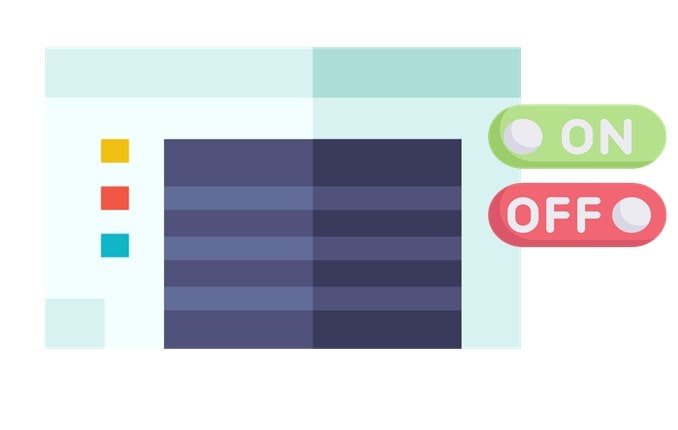It’s frustrating when your air conditioning system turns on and off abruptly. This issue, known as ‘short cycling,’ leads to inadequate cooling and results in higher energy consumption. We’ll explain the most common causes of short cycling in this article.
We’ll also discuss how to deal with window AC that turns on and off immediately and when it’s best to seek expert help. Understanding the causes of short cycling is crucial for maintaining the efficiency and longevity of your air conditioning unit.

Window Air Conditioner Compressor Turns on and Shuts Off Right Away After a Few Minutes
The following are some reasons why your window air conditioner turns on and off right away and answers to the issues.
Read also: Window Air Conditioner Turning On and Off Repeatedly
- The timer function is on unintentionally
While it may sound foolish, some homeowners are unaware that their air conditioners include a timer and automatic shutoff feature. As a result, their air conditioner continues to switch on and off by itself since it is essentially designed to do so.
Before you do anything else, check the handbook for your air conditioner to be sure you’re not missing something that could be a simple fix. This is a rare occurrence, but it does occur.
- The electrical wiring is damaged
There could be an issue with the house’s electrical wiring. Aside from the possibility of causing damage to the compressor, this issue has the potential to do significant damage to the entire house and endanger life.
Before manually turning the compressor on, double-check for any faulty electrical wiring or loose wires linked to the cooling systems.

Regular inspections of your air conditioner’s electrical components can help identify and rectify these issues before they lead to more significant problems.
- The AC has been overheated.
If there is a buildup of dirt or sludge inside the device, it may begin to overheat. To prolong its life and avoid a power outage, the device must turn off if it reaches a harmful temperature.
Because sludge or grime accumulation is prevalent in cooling systems, the compressor should be cleaned with a dry cloth as soon as possible to prevent it from fully failing.
- It’s time to replace your air filter
A dirty air filter is another common reason for short cycling. When the filter is clogged with dirt and debris, it restricts airflow, causing the unit to overheat and shut off prematurely.
Filter dirt and particles block the unit’s air intake, resulting in seized coils and a premature shutoff. As a result, it’s critical to change and clean your air conditioner filters regularly.
Regularly cleaning or replacing the air filter can significantly improve the performance of your air conditioner and prevent issues like short cycling.
If your exterior air conditioner turns on and off, you may need to remove the main cover to get to the filter. This can be hazardous to both you and your air conditioner (electrocution) (debris getting sucked into it). As a result, you’re better off hiring a professional to fix an exterior air conditioner that keeps turning on and off.
- The air conditioner is oversized compared to your space
Does your air conditioner cool your home in 10 minutes or less on a hot afternoon? This may appear to be a benefit, but it is a significant disadvantage. This could mean that your air conditioner is too big.
Because a large air conditioner is too powerful for your home, it will quickly cool your space and immediately shut down. Frequent starting and stopping wastes energy and inefficiently cools your home. It will also cause problems with humidity in your home.
To ensure optimal performance and energy efficiency, choosing an air conditioner that is appropriately sized for your space is essential. An oversized unit leads to short cycling and can fail to dehumidify your home properly.
- You have a condenser coil is dirty
Not only your air filter, but the condenser coil also needs to be cleaned regularly. The system is being pushed to work harder by the dirt. It causes your air conditioner to overheat and shut down eventually.
- Thermostat is placed in the Wrong Spot
If your window AC turns on and off immediately, you may have a thermostat problem. It seems logical. After all, your thermostat tells your air conditioner how to operate and when to turn on. Your thermostat may get an erroneous temperature reading near an air vent or a window.
To transfer the thermostat to a more acceptable location, you’ll need to work with a technician.
- Refrigerant Leak
Another potential cause of short cycling is a refrigerant leak. When the refrigerant is low, the air conditioner cannot cool effectively, leading to frequent on-and-off cycles. If you suspect a refrigerant leak, contacting a professional for repairs is essential.
Read also: GE Window Air Conditioners Troubleshooting
These are just a few more typical causes of an air conditioner that cycles on and off. If you can’t figure out what’s wrong, you should get help from a specialist. It will cost you, but ignoring the problem will cost you even more because a window air conditioner turns on and off right away, wastes energy and is inefficient.


